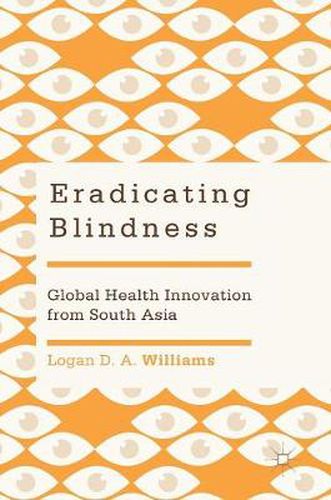Readings Newsletter
Become a Readings Member to make your shopping experience even easier.
Sign in or sign up for free!
You’re not far away from qualifying for FREE standard shipping within Australia
You’ve qualified for FREE standard shipping within Australia
The cart is loading…






This title is printed to order. This book may have been self-published. If so, we cannot guarantee the quality of the content. In the main most books will have gone through the editing process however some may not. We therefore suggest that you be aware of this before ordering this book. If in doubt check either the author or publisher’s details as we are unable to accept any returns unless they are faulty. Please contact us if you have any questions.
This book describes community ophthalmology professionals in South Asia who demonstrate social entrepreneurship in global health to help the rural poor. Their innovations contested economic and scientific norms, and spread from India and Nepal outwards to other countries in Africa and Asia, as well as the United States, Australia, and Finland. This feminist postcolonial global ethnography illustrates how these innovations have resulted in dual socio-technical systems to solve the problem of avoidable blindness. Policymakers and activists might use this example of how to avoid Schumacher’s critique of low labor, large scale and implement Gandhi’s philosophy of good for all.
$9.00 standard shipping within Australia
FREE standard shipping within Australia for orders over $100.00
Express & International shipping calculated at checkout
This title is printed to order. This book may have been self-published. If so, we cannot guarantee the quality of the content. In the main most books will have gone through the editing process however some may not. We therefore suggest that you be aware of this before ordering this book. If in doubt check either the author or publisher’s details as we are unable to accept any returns unless they are faulty. Please contact us if you have any questions.
This book describes community ophthalmology professionals in South Asia who demonstrate social entrepreneurship in global health to help the rural poor. Their innovations contested economic and scientific norms, and spread from India and Nepal outwards to other countries in Africa and Asia, as well as the United States, Australia, and Finland. This feminist postcolonial global ethnography illustrates how these innovations have resulted in dual socio-technical systems to solve the problem of avoidable blindness. Policymakers and activists might use this example of how to avoid Schumacher’s critique of low labor, large scale and implement Gandhi’s philosophy of good for all.